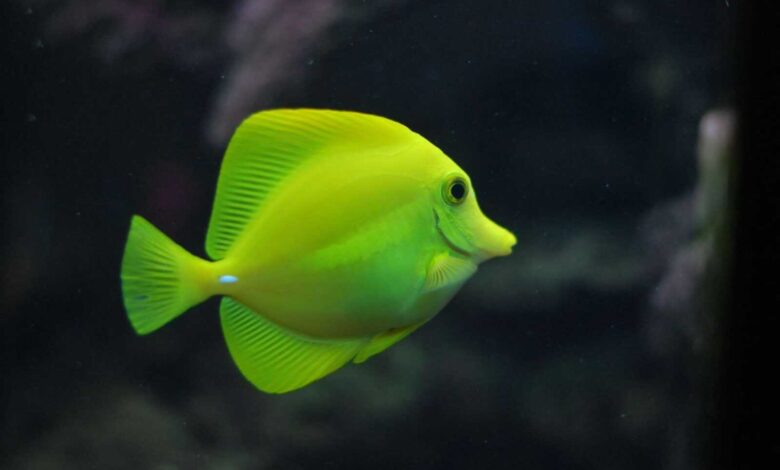
Common pet fish diseases, Fish are beloved pets that require attentive care and a well-maintained environment to thrive. When it comes to ensuring the health and happiness of your aquatic companions, being proactive in disease prevention is key. Here are some essential tips to keep in mind:
I. Understanding Common Pet Fish Diseases
A. Identifying Symptoms and Indicators:
When observing your fish, be vigilant for signs of unusual behavior, such as changes in swimming patterns, loss of appetite, unusual growths, discoloration, or frayed fins. Any of these symptoms could indicate a potential health issue that requires immediate attention.
B. Preventative Measures and Healthy Aquarium Practices:
Maintaining a clean and properly balanced aquarium environment is crucial for preventing the onset of diseases. Regular water changes, appropriate filtration systems, and adequate oxygen levels are essential for creating a healthy habitat for your fish.
II. Types of Common Pet Fish Diseases
A. Fungal Infections and Treatments:
Fungal infections can manifest as white patches or fuzzy growths on the fish’s body. Treatments typically involve antifungal medications and maintaining optimal water conditions to prevent further spread.
B. Bacterial Infections and Remedies:
Bacterial infections may result in symptoms such as open sores, ulcers, or fin rot. Administering antibacterial treatments and ensuring a hygienic environment can help control and manage bacterial infections effectively.
C. Parasitic Infestations and Solutions:
Parasites, such as ich and flukes, can cause distress to fish and may lead to severe health complications if left untreated. Introducing appropriate anti-parasitic treatments and quarantining affected fish can aid in preventing the spread of parasites.
D. Viral Ailments and Management:
Viral diseases in fish can be challenging to treat directly. However, maintaining a stress-free environment, providing a balanced diet, and ensuring optimal water conditions can help bolster the fish’s immune system and minimize the impact of viral infections.
III. Effective Treatment Methods for Common Pet Fish Diseases
A. Medication Administration and Dosage Guidelines:
When administering medication, follow the recommended dosage guidelines provided by aquatic specialists or veterinarians. Ensure that the treatment does not harm the beneficial bacteria in the aquarium.
B. Natural Remedies and Home Treatments:
Some fish ailments can be treated using natural remedies such as salt baths, garlic supplements, or herbal extracts. However, it is crucial to consult with an expert before using any home treatments to ensure their safety and efficacy.
C. Quarantine Procedures and Tank Isolation:
Isolating affected fish in a separate quarantine tank can prevent the spread of diseases to other healthy fish in the main aquarium. This practice also allows for close monitoring and targeted treatment of the affected fish.
IV. Maintaining a Healthy Aquarium Environment
A. Water Quality Management and Regular Testing:
Regularly test the water parameters such as pH levels, ammonia, nitrate, and nitrite levels to ensure they are within the optimal range for your fish species. Perform regular water changes to maintain a healthy aquatic environment.
B. Proper Nutrition and Balanced Fish Diets:
Providing a well-balanced diet that meets the nutritional needs of your fish is essential for supporting their immune system and overall health. Consult with experts to determine the appropriate diet for your specific fish species.
C. Tank Cleaning and Maintenance Practices:
Regularly clean the aquarium, remove debris, and vacuum the substrate to prevent the buildup of harmful bacteria and parasites. Ensure that the filtration system is functioning effectively to maintain water quality.
V. Professional Guidance and Expert Advice
A. Consulting with a Veterinarian or Aquatic Specialist:
If you notice any concerning symptoms or behavior in your fish, consult with a veterinarian or aquatic specialist who can provide professional guidance and tailored treatment plans for your specific situation.
B. Accessing Online Resources and Community Support:
Take advantage of online resources, forums, and communities dedicated to fish care and health. Engaging with experienced hobbyists and professionals can provide valuable insights and support for managing fish diseases effectively.
Common Pet Fish Diseases
Ensuring the well-being of your pet fish involves a combination of attentive care, preventive measures, and timely interventions. By familiarizing yourself with common pet fish diseases, implementing effective treatment methods, and maintaining a healthy aquarium environment, you can promote the longevity and vitality of your aquatic companions. Remember, proactive and informed care is the key to creating a thriving and harmonious aquatic habitat that fosters the well-being of your beloved fish.








